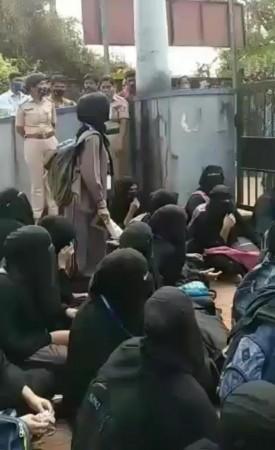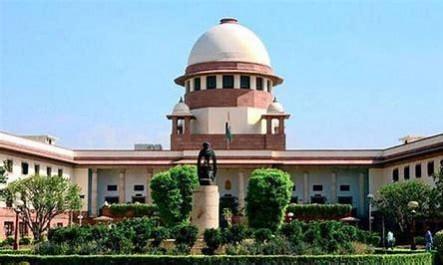The Karnataka hijab row has taken the cover off the deep fissures in society. It has also become reflective of how objectivity takes a backseat in front of a deadly cocktail of religion, education, society and politics.
The Supreme Court, on Tuesday, resumed hearing in the Karnataka hijab case. The students had filed a petition challenging the Karnataka High Court's March 15 order upholding the ban on wearing a hijab by Muslim girl students in the state. The case, heard by a bench comprising Justices Hemant Gupta and Sudhanshu Dhulia, while being argued in court, also referred to controversies such as, "love jihad," and the present atmosphere in the country.

What the appellants say?
Muslim appellants, who challenged the Karnataka hijab ban, in pre-university colleges and schools, told the Supreme Court on Monday that the directive against wearing a hijab was a part and pattern to marginalise Muslim minority communities.
Senior advocate Dushyant Dave, representing some of the appellants, told the bench, "This is not about uniform, by a series of acts of commission and acts of omission that have happened, unfortunately, I'm not blaming any individual or anything, but these acts of commission and omission show that there is a pattern to marginalise the minority communities. Part of this pattern is this directive." He further said that the directive had to be seen in the light of the "atmosphere we're seeing today, which is going far from being liberal that we have been for 5000 years."
He also argues that girls wearing hijab to schools did not violate anybody's peace, safety and security and there was only one aspect of public order which could be argued.

What the Solicitor General says?
Solicitor General Tushar Mehta argued for the government's order and said that not only hijab but even saffron shawls were prohibited.
He quoted the order, which says, "If no uniform is prescribed, students must wear dress which goes along with the idea of equality, unity of India and law and order." He further said, while closing his arguments, "There is a statutory power to prescribe uniforms by schools. There is a statutory power in the government to issue directions to school to ensure compliance with rules. There was a good and reasonable justification for the exercise of power. It was a non-arbitrary exercise, making it religion-neutral. They went before court claiming it is essential religious practice but could not establish as per settled criteria."
Advocate General of Karnataka Prabhuling K Navadgi said that there was a distinction between religious matters and social, political and economic matters associated with religious matters, which the State could regulate but not religion itself. He also said that protecting every aspect of religion was impossible for the state, which is why the concept of essential religious practice evolved.
What the Bench says?
The bench comprising Justice Dhulia and Justice Gupta told Dave that the definition of dignity had changed with times and it was an ever-evolving one. While the Bench concluded its arguments for the day, it will hear the petitions tomorrow.
















